Jamie White
IAmA former film student with aspirations to become a struggling writer.
Contributor II
- Plebian Penman
- Common Writer
- Lurker
- Pssst
- Sharp-Eyed Citizen
- Town Watch
- Actor
- ?
- Articles
7 - Featured
6 - Comments
106
- Ext. Comments
22 - Processed
15 - Revisions
15
- Topics
14 - Topics Taken
1 - Notes
46
- Topics Proc.
15 - Topics Rev.
1
- Points
1935 - Rank
70 - Score
1025
Latest Articles
Latest Topics
The Flashback in Film (and Possibly Television)What use do flashbacks actually have? To merely give backstory to a character(s), to add a tension, to foreshadow something? |
The Ultimate Arrow "Who's in the Grave?" Theory RoundupArrow season 4 spoilers. Going on the Arrow sub-reddit there seems to be several "who's in the grave?" everyday. I suggest having a definitive roundup of who could be the person theorised about so much. Whose death would have the biggest impact on the show? Are Felicity and Thea in the clear now that they've survived near death experiences? The writers/show-runners say Felicity is not in the grave, but could her body be elsewhere and the Felicity in the car with Oliver be a hallucination much like Shado was in the flashbacks. This should aim to be the definitive piece for the "who's in the grave?" theories. Which characters make sense? Which characters don't? Prime candidates: Diggle, Laurel, Felicity, Thea, William Hawke and possibly Quentin Lance. |
Mental Disorders and Illnesses in Children's AnimationWhat are some examples of representations of mental ilnesses/disorders in animations aimed at children? Who exactly are the characters that exhibit certain maneurisms of such things for? Are they for the children to idenify and connect with or for the parents to have an awareness and to help spot any symptoms? The big example for both it's animation adaptation and book is Winnie the Pooh. Essentially all the characters appear to be diagnosable with specific mental disorders; Eeyore is perhaps the instantly recognisable one with depression, but Poo exhibits symptoms of ADHD, Owl dyslexia and even Christopher Robin with schizophrenia. Other animated characters that could be mentioned I can think of off the top of my head come from Pixar. There are various examples of depression in the Pixar film universe – Marlin(Finding Nemo, Carl (Up), Jessie (Toy Story) and Wall-E may exhibit some signs of OCD and/or anxiety disorders. There are plenty of different animations that could be mentioned for this, but the real driving point should be the questions mentioned at the beginning. How can these characters be read in terms of what illnesses they may portray? Who are these representations for? What purpose (if any) do they serve and is it useful?
|
Published | 2016 Acadamy Awards Analysis and RundownThe nominations for the 2016 Acadamy Awards are out! Analyse the nominations for their respective categories, mentioning whether any film/actor/director etc. to have missed out and maybe even some predictions.
|
Published | Animal Symbolism in Life is StrangeThe use of various different animals in the episodic video game "Life is Strange" span from spirit animals to breeds of dogs assigned to people who buy drugs from Frank to even scientific theories (ie the Butterfly effect). There is a wide selection of animals to choose from, but the five with the most subject matter on would probably be: the deer, butterflies, dogs, whales and birds (specifically, the blue jay). Discuss the meanings and connotations certain animals have in "Life is Strange" and perhaps which human they can be assigned with. Does Frank's buyers list accurately reflect who he has assigned to a certain breed? Is there any significant meaning to the list at all? What do the various appearances of the butterfly represent? Does it always show up when the Butterfly Effect in practice?
|
"If it's not Scary, it's not a Horror Film"A discussion revolving around how horror films are more than just about how scary they are and that the scare factor does not solely define a movie as a horror. There are films that are visually/semantically not horror films (Alien is THE example) yet the arc of the film strongly resembles that of a horror film. Horror films usually have some sort of political/social/cultural message to them. There was an Israeli called "Rabies" (or "Kalevet") that had incredibly strong political viewpoints about it's home country wonderfully summed up by the last line in the film, "Country full of shits." Of course, this could be taken to include how horror movies should also be scary and how that is still an important but not integral aspect to the genre. Also the concept of how what we are scared by/how scared we are is more subjective than objective would be an interesting point for discussion.
|
Televison to Film: The Right Decision After a Show Finishes?Hannibal show creator Bryan Fuller has recently spoken of the possibility to bring his show back in the form of a film. There are a few examples of this happening before with shows like Spooks and The Inbetweeners (both British, I know; a possible comparison to American shows could be done). Is this creatively the right choice? Have these sorts of jumps from small to big-screen worked well before?
|
Adult Cartoon Shows and Their Apparent Decline in QualityThe Simpsons, South Park, Family Guy. These three programmes in particular have received a fair amount of criticism in recent years for their apparent decline in quality and a lot of he time earlier seasons are superior. But is this really the case?
|
Latest Comments
| Batman Vs Superman: What Went Wrong? | |
I’m glad you’ve enjoyed it! It’s been really mentally stimulating talking with you. Hopefully I get to read an article of yours, which I’m sure will be every bit as intelligent as this discussion has been. Valar morghulis. | Game of Thrones: Don't Judge a Boob by its Cover |
The Brienne scene in some ways pulls the wool over our eyes with this, as her femininity and showing as such through her naked body is a genuine “weakness” of hers that she hates showing. I don’t think the showrunners have always shown nudity as a female vulnerability, but definitely more so than not and by a long way. Another good point on cultural differences. It is often easy to forget that Mel is not from Westeros because she is just so comfertable (confident is maybe a better word) around everyone. I really like this scene because it brings together so many elements of nudity and nakedness: prurience, authenticity, cultural context as you so rightly pointed out, and now there is the theorisation that Mel was in her true form (the old woman from the S6 premiere). This brings in a completely new element to the scene. Selyse being a true believer and not needing to seeing the beautiful Red Woman, while the viewer (the objectifying viewer) still needs the beauty to be convinced to go along with Mel; it is not until the audience wants and “needs” her most that she reveals her true self to us (which was a great scene, too). The audience is willing to not care who she is or what she looks like for one thing everyone (seemingly) wanted – Jon Snow. I see what you mean when you say the audience is meant to be “aroused” by Cersei’s humiliation, but I believe a better word to use would be schadenfreude (taking pleasure in others’ pain/humiliation etc.). The one issue i have with this scene, Cersei’s all too perfect body. We’ve scene recenlty with OAP Mel that an accurate depiction of an elderly woman was done excellently, but why couldn’t they have done this with a mother of three? If we had seen the toll of three pregnancies on Cersei’s body it would’ve been a scene much more focused on her punishment than on her nakedness being a main focus. | Game of Thrones: Don't Judge a Boob by its Cover |
Very, very well said and argued. I completely see your point now. The argument can be made then that it is the audience need to lter their expectations rather than how the show portrays nakedness and nudity. Of course, this isn’t the whole case, the show still uses nudity only as sexual. In fact, the only non-sexual example of nakedness on the show I can think of is that one brief scene where we see Hodor’s penis. Saying that, he is also a non-sexual character, simpleton, and a male (not that he cannot be found “sexy”). I still think Qarth is an odd place. I completely agree with your statments on cultural differences and historical contexts, and if a one boob out Dany was in Mereen or Yunkai I would definitely agree, but Qarth just seems too civilise, on the show that is. Obviously, they still have their own rules and standards because of their culture, but it is probably the most Western city in Essos, and hence I still feel the boob out attire would still feel a little off. Something like this has to be established very early on, and I don’t believe we are given any hints that the fashion is ridisculously different copared to what we’ve already seen – I think in the context of the show the way Qarth was portrayed was to make a substantial distinction between them and the only other culture we’d seen up until that point – the Dothraki. So I belive that if some form of fashion staement with a breast exposed would’ve blurred the lines between sophisticated Qarth…eens(?) and the Dotjraki. I ususally watch the show before my brother does and when he gets home he will usually ask me a couple of questions, and normally one is about whether there was boobs in the show. This annoys me to no end A) because he supports the notion of only viewing nudity as sexual and B) the nudity shouldn’t be one of the primary interests of the show. | Game of Thrones: Don't Judge a Boob by its Cover |
Thanks for your comment and thanks for disagreeing! (I really mean it) I think the notion of prurience in Essos is a very relevent matter. The Dothraki, for example, are not considered as such for their clothing and sex scenes because of their tribal nature. Qarth is a more sophisticated place, more akin to Westerosi cities, so I do believe that nakedness in Qarth would more likely be considered prurient. All i meant by it being a good decision not to shows Dany’s breasts as was done in the book was because there didn’t seem to be any reason to do so. Re sansa stuff: 1. The undressing does not mean that her character changes, but how we as the audience look at her. She does not become any less innocent etc, but we see her in a different way. I’d have liked to have heard what you disagreed with regarding the Jaime/Brienne scene and what you thought about Mel’s and Cersei’s scenes. Also, never feel you have to apologise for having a different opinion. In fact, I’m glad you did disagree with most of what I said. | Game of Thrones: Don't Judge a Boob by its Cover |
Thanks for your comment and thanks for disagreeing! (I really mean it) I think the notion of prurience in Essos is a very relevent matter. The Dothraki, for example, are not considered as such for their clothing and sex scenes because of their tribal nature. Qarth is a more sophisticated place, more akin to Westerosi cities, so I do believe that nakedness in Qarth would more likely be considered prurient. All i meant by it being a good decision not to shows Dany’s breasts as was done in the book was because there didn’t seem to be any reason to do so. Re sansa stuff: 1. The undressing does not mean that her character changes, but how we as the audience look at her. She does not become any less innocent etc, but we see her in a different way. I’d have liked to have heard what you disagreed with regarding the Jaime/Brienne scene and what you thought about Mel’s and Cersei’s scenes. Also, never feel you have to apologise for having a different opinion. In fact, I’m glad you did disagree with most of what I said. | Game of Thrones: Don't Judge a Boob by its Cover |
i really think it was the best season for a while now. I particularly loved the Garrison-Trump story arc and, of course, the Canadians. From a social, political, cultural etc standpoint, it was very well done. I think the continuity in the episodes (which is nothing new for SP by far) was a little over done, though. They had so many storylines going by the last three episodes it just kind of tainted it for me a tiny bit. Still a great season though. | South Park: Respect Their Commentarah |
I think while the semantics may change (heterosexual to homosexual/multicultural families etc.) the syntactics remain the same. Generally how a family oriented show works stays the same; the roles and stereotypes within the family are the same. Recently, inModern Family Claire has become the real breadwinner for the Dunphys. It even began to parody the switching of stereotypes with Claire the breadwinner and Phil the doting, trophy wife. | How has the Idea of "Family" Changed on Television since World War II? |
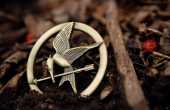

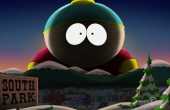
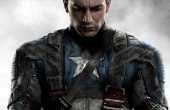
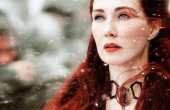
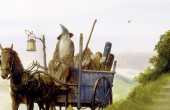
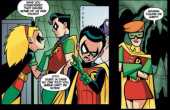
I’ve not been able to see the film yet, but this seems to have confirmed some of my suspicions about how well the film was made. Nice concise article btw.